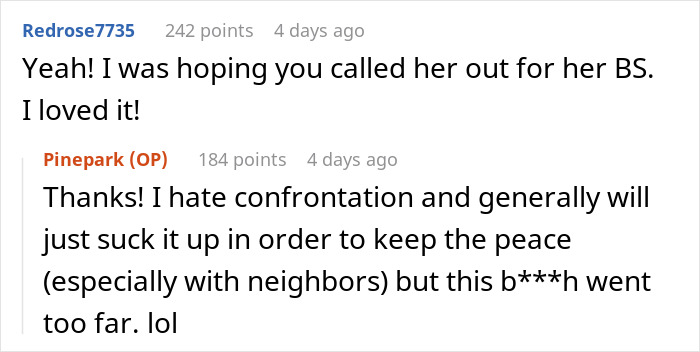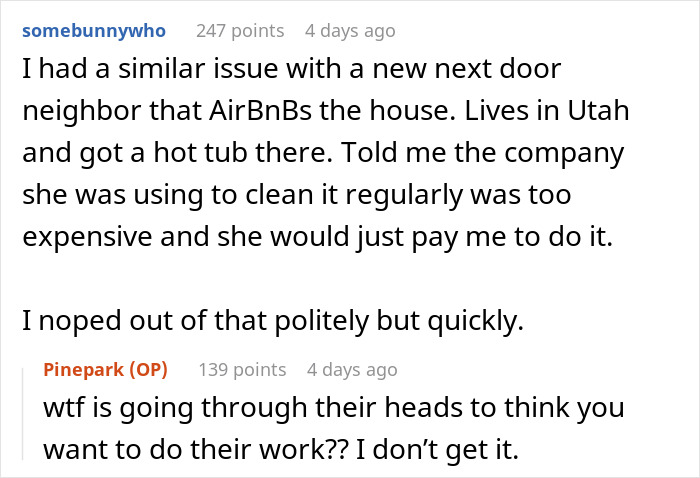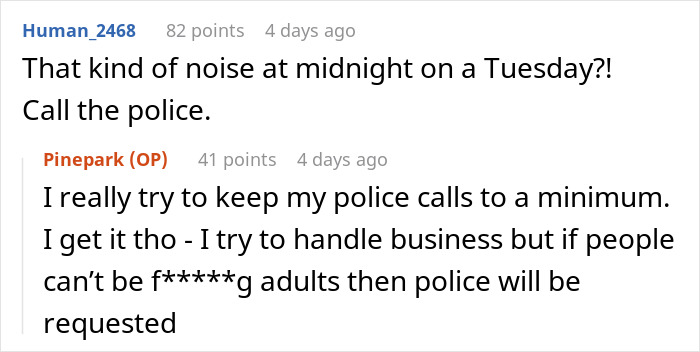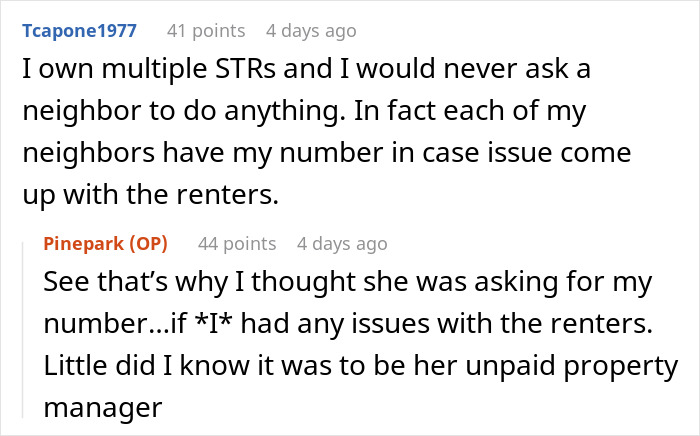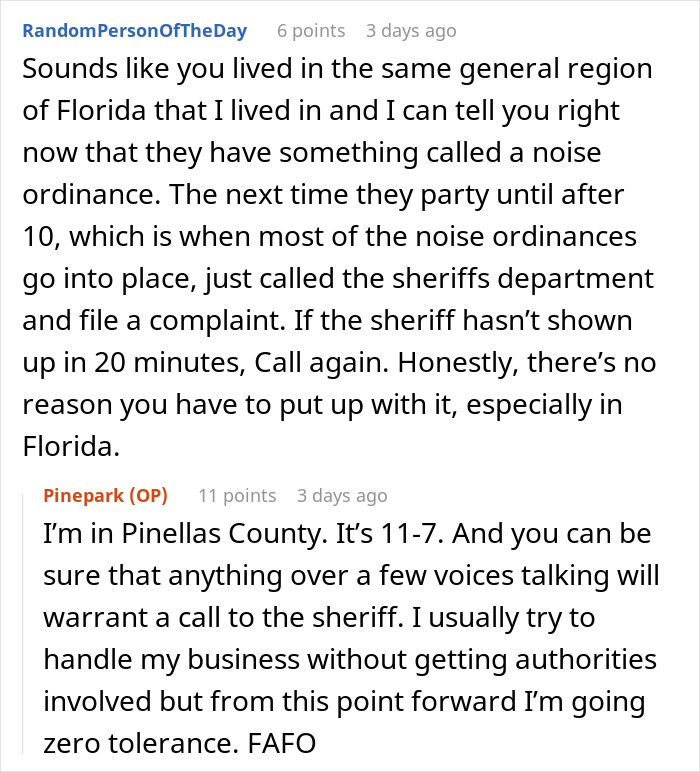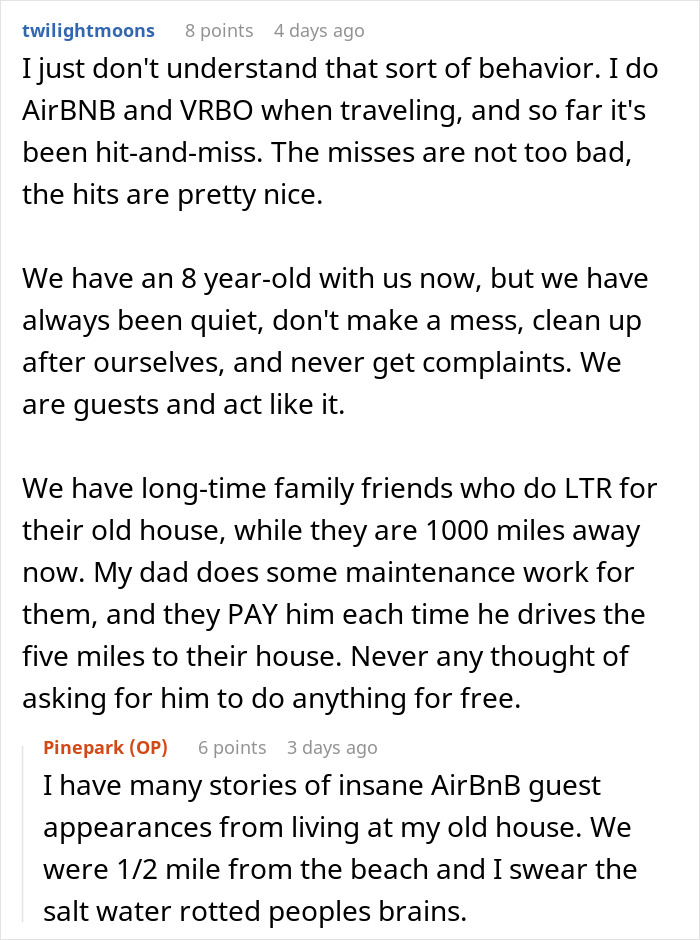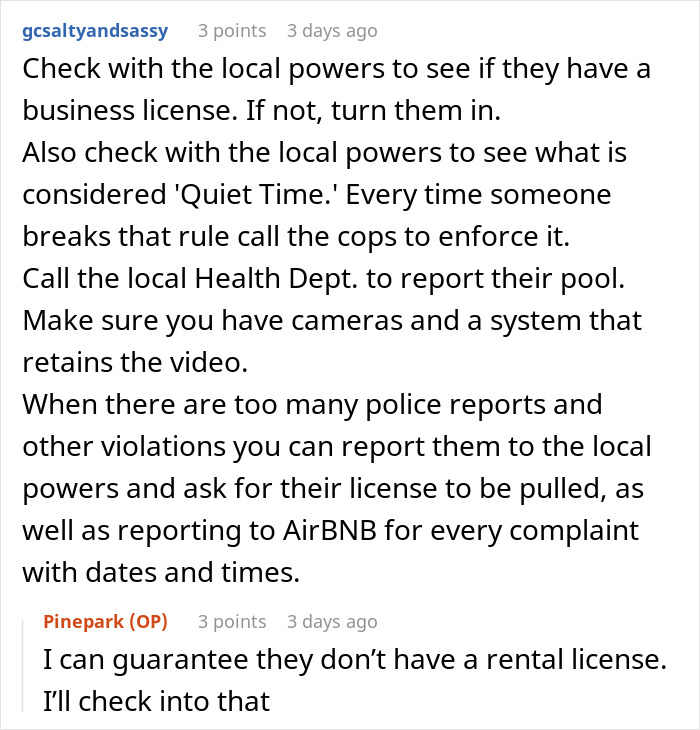To most of us, acting neighborly means being friendly, helpful and welcoming towards those who live around you. Need to borrow a cup of sugar? I’ve got you! Need a ride to the airport? Sure, hop in! Here are some freshly baked brownies I made, enjoy! But we can’t all be best friends with our neighbors. And it’s definitely better to live next to strangers who don’t acknowledge your existence than to be stuck with neighbors who never leave you alone.
One homeowner recently posted on the Entitled People subreddit detailing how her next-door neighbor started driving her crazy after turning her home into a rambunctious party house. Below, you’ll find the full story, as well as some of the reactions invested readers shared.
It’s common for neighbors with different lifestyles to butt heads

Image credits: astrakanimages/Envato (not the actual photo)
This woman reached her breaking point after an entitled neighbor expected her to be at her beck and call
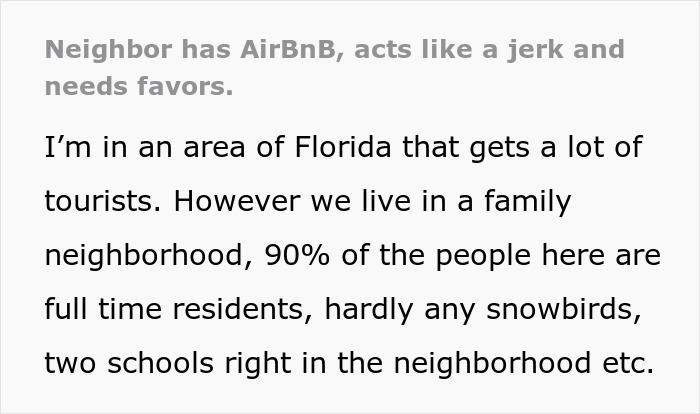
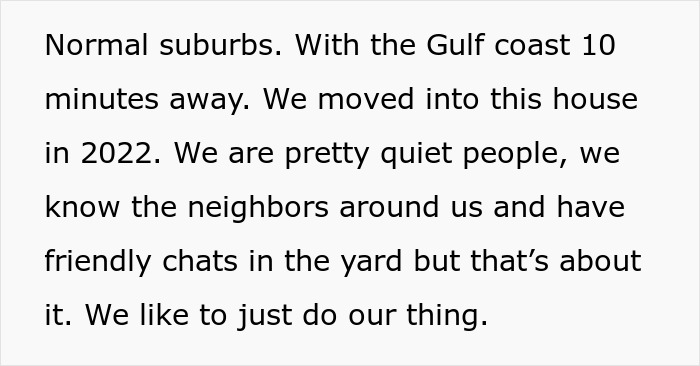



Image credits: Pixabay/Pexels (not the actual photo)
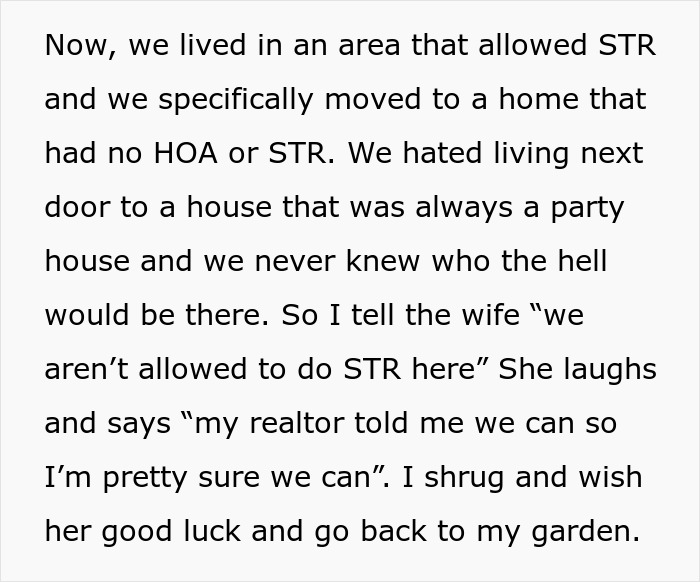
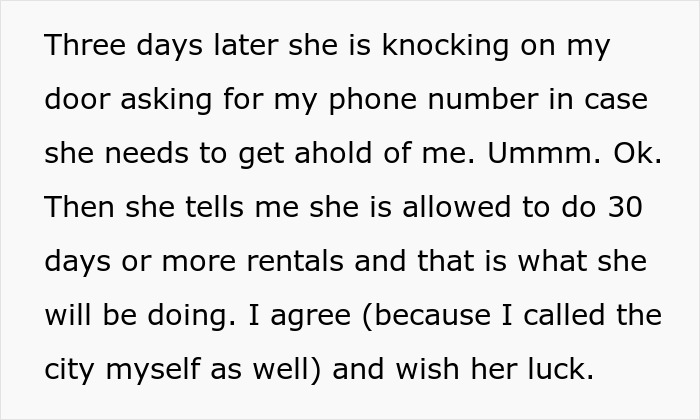
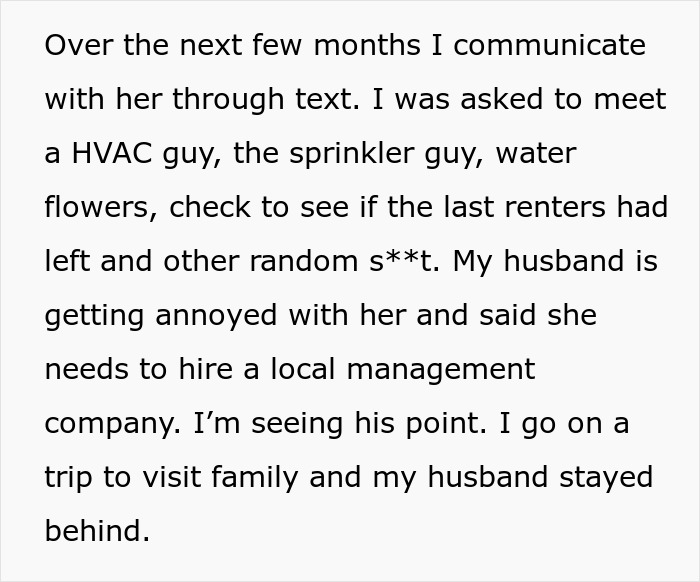
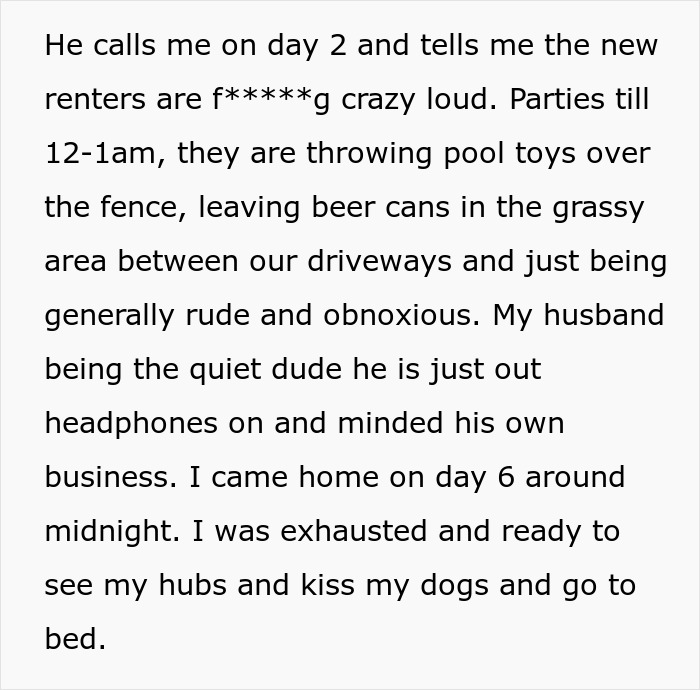
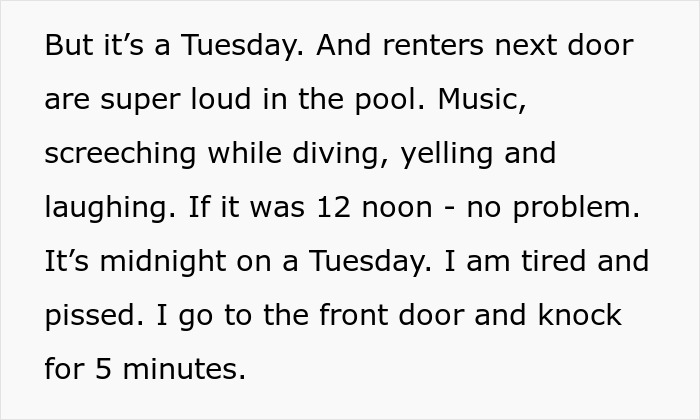

Image credits:westend61/Envato (not the actual photo)
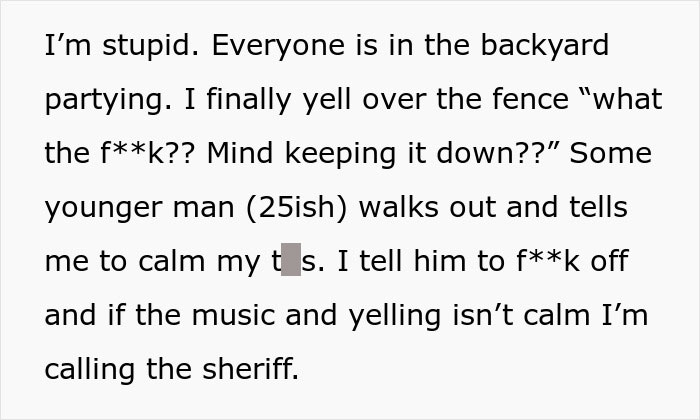
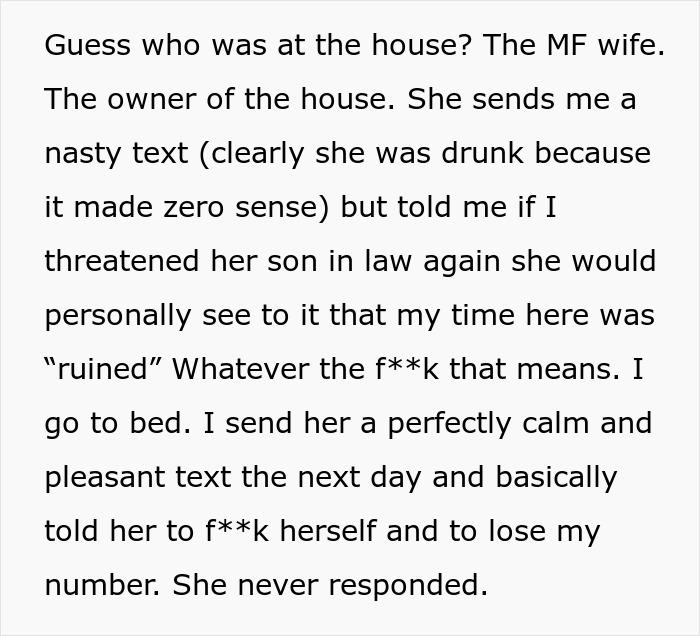
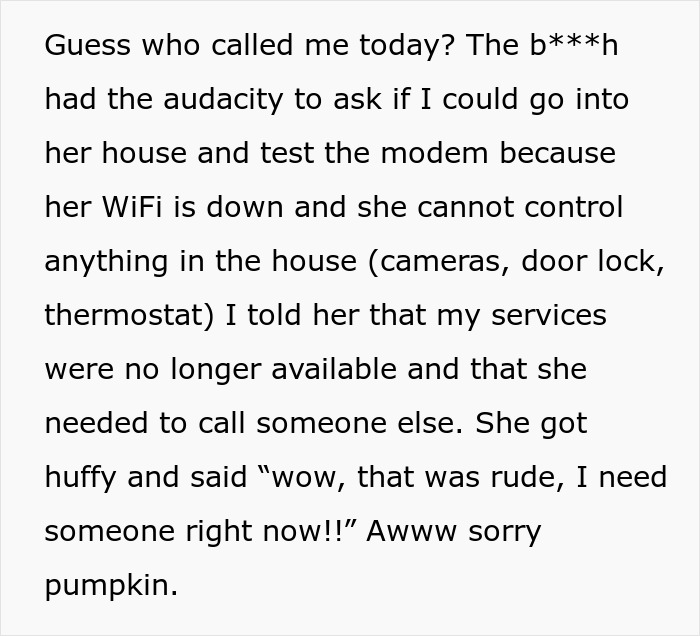

Image credits: Pinepark
The vast majority of Americans dislike at least one of their neighbors

Image credits: Haikal Omar/Pexels (not the actual photo)
Whether you live in an apartment building or a home in a residential neighborhood, there’s a good chance you’ve had an issue with one of your neighbors before. In fact, a survey from LendingTree found that 73% of Americans dislike at least one of their neighbors.
As far as why Americans decide that they aren’t fans of their neighbors, the top reasons cited were: giving off a “weird vibe,” making too much noise, being rude, having disruptive pets, being nosy or a busybody, failing to maintain the exterior of their home, having loud or unruly children, stealing parking spots, smoking, having differing political views, and using their home as a short-term rental property.
The neighbors in this story seem to check off at least two of those boxes! Apparently, noise complaints often come along with Airbnbs, IGMS notes on their site. This often leads to complaints from neighbors, but the issue can quickly escalate.
For example, neighbors might check to see if the Airbnb breaks any municipal or community laws or regulations. In which case, the hosts might be fined or have to shut down the rental property. At the same time, disgruntled neighbors can report the property to Airbnb, which can lead to an investigation.
And if things really get out of hand, neighbors might call law enforcement or even file a lawsuit against the homeowners running a short-term rental property. Legal action is typically a last resort, as it can be an exhausting and expensive process for all involved. But it’s still wise for hosts of Airbnbs to take precautions and be considerate towards neighbors to try to minimize issues.
It’s an Airbnb host’s responsibility to ensure that their home doesn’t wreak havoc on their neighborhood
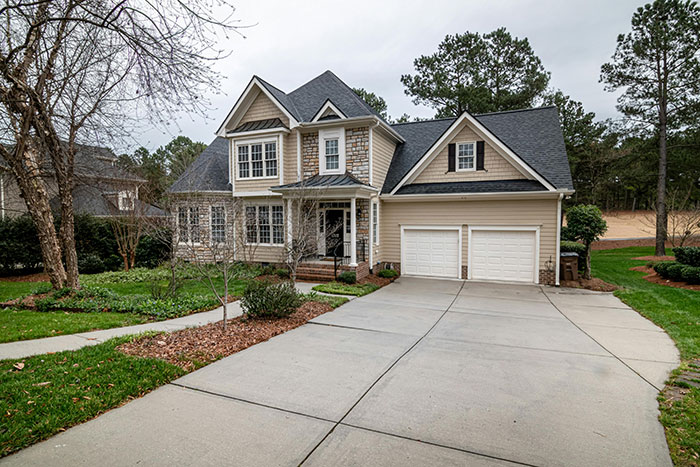
Image credits: Curtis Adams/Pexels (not the actual photo)
IGMS recommends communicating with those living nearby and keeping them in the loop before starting to host short-term guests. Answer any questions they have, provide them with a small token of appreciation such as a bottle of wine or box of chocolates to be neighborly, and provide them with a form of communication to reach you in case issues ever arise.
It’s also a good idea to invest in software and tools to manage noise before guests arrive, as it’s much easier to prevent issues than to resolve them later. Hosts can also screen their potential guests before accepting their requests by reading previous reviews of them. It’s not worth it to have someone in your home who’s been known to make lots of noise and leave a mess if it means they might damage your property and your relationships with neighbors.
Finally, hosts should be sure to provide clear instructions for guests. Tell them exactly where to park (as well as where not to park), and give detailed directions for getting to the property and getting inside. Make it clear that parties and loud events are prohibited, and ask them to kindly respect your neighbors. And if necessary, alert them of any penalties they may face for failing to abide by the rules.
Conflicts with neighbors are inevitable, whether you live in a suburb full of quiet families or a building packed with college students. So it’s important for everyone to know how to keep the peace and mitigate or minimize conflicts. After all, your home is the place where you should feel the most comfortable. You shouldn’t have to worry about having awkward run-ins with the couple next-door or fear that you’ll find an aggressive note on your car’s windshield when you leave for work in the morning.
We would love to hear your thoughts on this situation in the comments below, pandas. How would you respond to an issue like this with a neighbor? Feel free to share, and then if you’re interested in checking out another Bored Panda article featuring drama between neighbors, look no further than right here!
Readers shared their reactions to the story, including suggestions for what the homeowner can do next, and she joined in on the conversation

